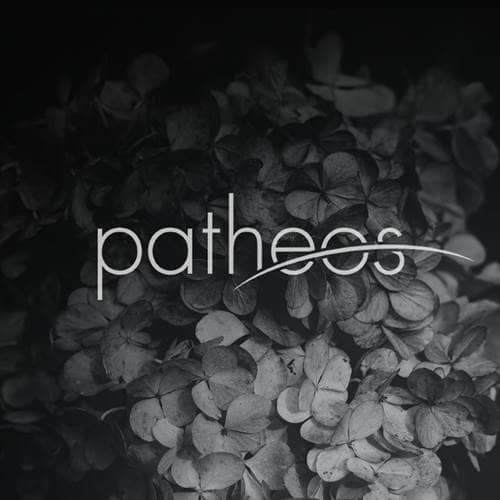- Trending:
- Forgiveness
- |
- Resurrection
- |
- Joy
- |
- Trump
- |
- Kamala Harris
- |
- Supreme Court

RELIGION LIBRARY
Scientology
Missions and Expansion
In spite of the controversy that followed the church through the last decades of the 20th century, it grew and spread internationally. At the beginning of the 1960s, it had just begun to spread beyond the English-speaking world. After the first non-English-speaking church was established in Paris (1959), new churches were founded in Denmark (1968), Sweden (1969), and Germany (1970). During the 1970s, Scientology continued to spread throughout Europe, with churches opening in Austria (1971), Holland (1972), Italy (1978), and Switzerland (1978). Scientology centers could be found in fifty-two countries by 1980. That number had expanded to seventy-four by 1992 and then included all of the countries of the former Soviet bloc.
As in the United States, a cult awareness movement spread through Europe in the 1970s. As early as 1974, French anti-cultists founded L'Association pour la Défense de la Famille et de l'Individu (ADFI). ADFI gradually gained the financial support of the French government, and has subsequently become the most substantial anti-cult group in Europe. In England, Family Action Information and Rescue (FAIR), modeled somewhat on the American Cult Awareness Network, emerged in 1975 as a support group for parents whose children had joined a new religion. FAIR soon found a champion in Lord (John Francis) Rodney, who used his position in the House of Lords on behalf of the organization.
Germany provided a most fertile ground for growing cult awareness sentiment. The Evangelical Church of Germany (Lutheran) lent its support through its Office for Sects and Ideologies. (The term "sect" is used in Europe to refer to what is called a cult in North America.) In 1977 several small anti-cult organizations merged to form Aktion für geistige und psychische Freiheit, Arbeitgemeinschaft der Elterninitiativen e.V. (AGPF). However, several years earlier Aktion Bildunginformation, an organization devoted especially to opposing Scientology, filed and won a series of suits against the church for proselytizing in public places. In 1981, Aktion Bildunginformation founder, Ingo Heinemann, became the director of AGPF.
In December 1980, ADFI organized an international conference in response to the Peoples Temple deaths that occurred in Jonestown, Guyana in 1978. Conference attendees representing fourteen countries established an international cult awareness network. Although the Jonestown tragedy energized anti-cult sentiment in Europe, actions affecting Scientology were relatively minor until the suicide/murders of the members of the Solar Temple in 1994, soon followed by the gassing of the Tokyo train station by the AUM Shinrikyo. Anti-cult groups across Europe, especially in France, Belgium, Switzerland, and Germany, demanded action, and governments began to respond.
France became the most active in pursuing cults in the decade following the Solar Temple incident. The French Parliament initially opened a national Observatory on Sects with a phone line for people to report complaints about sect activity. That soon gave way to the present French Mission to Fight against Sects, which has pursued an active propaganda campaign again a spectrum of minority religions, including Scientology.
A commission appointed by the French National Assembly to study these issues released its report in January 1996. One hundred seventy-two groups were singled out and listed as sects, the principle charge being that they practiced "mental manipulation" (the European equivalent of what has been called "brainwashing"). The French report was followed by a variety of documents produced by similar government commissions in Belgium (1996), the Canton of Geneva (1997), and the Council of Europe (1999). In 1998, the German Commission issued its lengthy Final Report of the Enquete Commission on So-called Sects and Psychogroups: New Religious and Ideological Communities and Psychogroups in the Federal Republic of Germany. While mild compared to the French and Belgian reports, it singled out Scientology for special negative consideration.
Germany had been the most active in pursuing anti-Scientology efforts prior to 1994, but these increased markedly in the late 1990s. In 1997, while the Enquete Commission was still meeting, the government moved to place the Church of Scientology under surveillance. Yet when the Enquete Commission finally issued its report, it concluded that there was "no problem and no danger" from small religious groups in Germany and discounted the idea of brainwashing or mental manipulation. It hardly mentioned Scientology, though it did conclude that further investigation should be pursued. The defeat of the Christian Democratic Union (which had been most vocal in attacking Scientology) in the 1998 elections heralded a de-escalation of the often bitter rhetoric between the government and the church and opened the possibility of Scientology assuming a more positive role in the country.
In both France and Germany, the church has been in a variety of court battles, including a criminal case brought against some church leaders in Lyon. In spite of the negative image perpetuated in the press and the speeches and actions of government officials, the courts, especially national courts, have largely ruled in the church's favor. This was illustrated in Italy in 1986 when authorities announced the closing of all of the extant Italian offices of the church. Three years later seventy-nine church officials went on trial in Milan, charged with deceiving the public. Most were found non-guilty, but six were convicted. The six appealed, and throughout the 1990s the case went back and forth between the Appeals court in Milan and the Italian Supreme Court until 2000 when the Milan court accepted the Supreme Court judgment and found the six innocent.
Through the 1980s and 1990s, Scientology was a major target of anti-cultists and disgruntled former church members. With the abandonment of deprogramming and the demise of the Cult Awareness Network, in both of which events Scientology was closely involved, pressure on the church was significantly reduced. Since the mid-1990s, no new issues have generated any traction in the courts. Over all, the church has been free to grow, limited only by its ability to attract new members and provide leadership for new missions and church centers. Since the mid 1990s, it has grown at a modest but steady pace.
Study Questions:
1. Where did Scientology spread most rapidly?
2. Describe France and Germany's role in resisting Scientology. What were the underlying motivations?
3. What contemporary factors might limit Scientology's spread?










